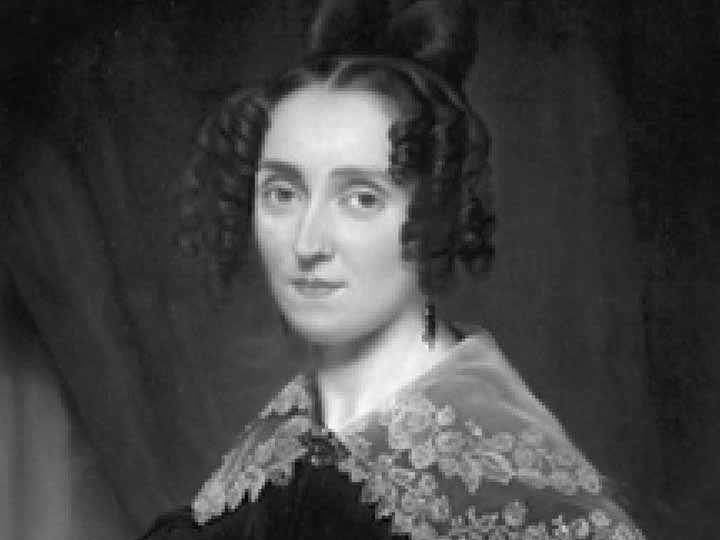Louise Farrenc (Composer/Pianist)
 Louise Farrenc (31 May 1804 – 15 September 1875) was a French composer, virtuosa pianist and teacher.
Louise Farrenc (31 May 1804 – 15 September 1875) was a French composer, virtuosa pianist and teacher.
Born Jeanne-Louise Dumont in Paris, she was the daughter of Jacques-Edme Dumont, a successful sculptor, and sister to Auguste Dumont.
Louise Farrenc enjoyed a considerable reputation during her own lifetime, as a composer, a performer and a teacher.
She began piano studies at an early age with a Senora Soria, a former student of Muzio Clementi, but when it became clear she had the talent of a professional pianist, she was also given lessons by such masters as Ignaz Moscheles and Johann Nepomuk Hummel.
Because she also showed great promise as a composer, her parents decided to let her study composition with Anton Reicha, at the time composition teacher at the Conservatoire. it is not yet clear if Louise Farrenc followed his classes there, as the composition class was at the time one of the classes opened only to men.
She met Aristide Farrenc, a flute student ten years her senior, who performed at some of the concerts regularly given at the artists' colony of the Sorbonne, where Louise's family lived. She married him in 1821. She then interrupted her studies to concertize throughout France with her husband. He soon grew tired of the concert life and decided to open a publishing house in Paris, which as Éditions Farrenc, was one of France’s leading music publishers for nearly 40 years.
Farrenc returned to her studies with Reicha. After completing her studies, she reembarked on a concert career and gained considerable fame as a performer during the 1830s.
By the early 1840s, her reputation was such that in 1842 she was appointed to the permanent position of Professor of Piano at the Paris Conservatory, a position she held for thirty years and one which was among the most prestigious in Europe.
Despite this, Farrenc was paid less than her male counterparts for nearly a decade. Only after the triumphant premiere of her nonet, at which the famous violinist Joseph Joachim took part, did she demand and receive equal pay.
Beside her teaching and performing career, she also produced and edited an influential book about early music performance style. For several decades after her death, Farrenc’s reputation as a performer survived and her name continued to appear in such books as Antoine François Marmontel’s Pianistes célèbres.
Her nonet had achieved around 1850 some popularity, as did her two piano quintets and her trios. But, despite some new editions of her chamber music after her death, her works fell into oblivion.
- Tags: inspiration music success